Under Tennessee law, selling drugs is a serious felony crime. A conviction for selling drugs can land you significant time in prison. That is why you need an experienced criminal defense attorney versed in handling drug sale cases. Nashville-based attorney Philip Clark has the requisite degree of experience and handles such cases in Nashville and other parts of Middle Tennessee.
Legal Overview
Tennessee law provides that it is a crime for a defendant to knowingly sell a controlled substance, such as cocaine, heroin, marijuana or meth to name a few of the common drugs.[1] The penalty for a violation of this law results in a felony conviction.[2] Contrast that with the simple possession law or what is known as “casual exchange.” There, the crime is a misdemeanor rather than a felony.
As with any case, the burden is on the prosecution to prove each element of the offense beyond a reasonable doubt. This means that the prosecution must prove that the defendant knowingly sold drugs to another person.
A key factor in drug sales cases is the amount and value of the drugs that are found on the defendant. The Tennessee Court of Criminal Appeals has written: “Tennessee courts have consistently found that the value of illegal drugs is relevant to establish a defendant’s intent to sell or deliver.”[3]
Applicable Defenses
An experienced criminal defense attorney, such as Nashville-based attorney Philip Clark, may be able to raise some constitutional-based defenses to the drug sales charges. Law enforcement officials need some level of individualized suspicion – often what is called “probable cause” – that the defendant is engaged in illegal activity or harboring contraband before they can search the defendant. Both the Fourth Amendment to the United States Constitution and Article I, Section 7 of the Tennessee Constitution require police officers to comport themselves and not engage in “unreasonable searches” or “unreasonable seizures.” As the courts say, “the ultimate touchstone” under the Fourth Amendment is reasonableness. An experienced criminal defense attorney like Philip Clark may be able to convince a judge or jury that the actions of the law enforcement officers in your case acted unreasonably in violation of the Fourth Amendment or Article I, Section 7.
If law enforcement officials lack the requisite degree of probable cause, then the evidence of the drugs must be suppressed or excluded. This is what is known as the exclusionary rule in criminal law. Also, law enforcement officials have the burden to show that there is probable cause when they search you without a warrant.[4]
Even if there is probable cause, a defense attorney like Philip Clark may be able to convince prosecutors that the case is really more about the simple possession of drugs rather than the sale of drugs.
Need to Hire Criminal Defense Attorney
Needless to say, if you are charged with a drug sales or distribution offense, you need a criminal defense attorney experienced in defending individuals charged with drug sale crimes. An experienced criminal defense attorney may be able to negotiate with prosecutors so that you receive a fair plea down to simple possession of the drugs. There also may be defenses based on an unlawful search or seizure under the Fourth Amendment or Article I, Section 7 of the Tennessee Constitution.
Nashville-based attorney Philip N. Clark of PNC Law is just such an experienced attorney. He is a zealous advocate on behalf of his clients. Furthermore, he has nearly twenty (20) years of experience as a former Metro police officer. If you face charges for the illegal sale or distribution of drugs, contact attorney Philip Clark at (615) 678-1033 or e-mail him at philip@tncriminaldefenseattorney.com.
[1] Tenn. Code Ann. §39-17-417(a)(3).
[2] Tenn. Code Ann. §39-17-417(b)-(j).
[3] State v. Martinez, 372 S.W.3d 598, 619 (Tenn. Crim. App. 2011).
[4] State v. Berrios, 235 S.W.3d 99, 105 (Tenn. 2007)
Connect with Philip N. Clark right away!
(615) 785-2000

